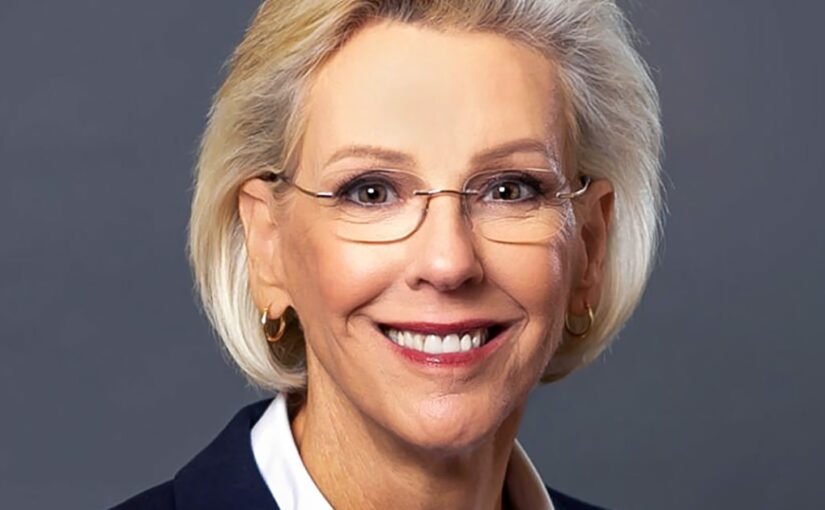This week on 60 Minutes, Scott Pelley and a team of producers continued their five-year investigation into Havana Syndrome, the phenomenon of mysterious brain injuries to U.S. national security officials and diplomats, and their families, both abroad and at home, that in some cases have led to major health conditions, like blindness, memory loss, and vestibular damage.
This fourth installment brought major developments to the story: a suspected link between attacks in Tbilisi, Georgia and a top-secret Russian intelligence unit, and new evidence that a reliable source calls “a receipt” for acoustic weapons testing done by the same Russian intelligence unit.
A retired Army lieutenant colonel who led the Pentagon investigation into these incidents, Lt. Col. Greg Edgreen, told 60 Minutes he is confident that Russia is behind these attacks, and that they are part of a worldwide campaign to neutralize U.S. officials.
“If my mother had seen what I saw, she would say, ‘It’s the Russians, stupid,'” Edgreen told 60 Minutes.
60 Minutes Overtime spoke to producers Oriana Zill de Granados and Michael Rey about the story’s evolution over the course of their investigation, as they pulled back layers of government secrecy to speak with victims, identify a potential technology used to attack them, and examine a Russian intelligence unit that may have been behind some of the Havana Syndrome incidents.
“In the first story we said, ‘Hmm. Is this Russia?’ Second round of stories we felt, ‘This is starting to look like Russia.’ And in this story, our sources are telling us that it’s Russia,” producer Michael Rey told 60 Minutes Overtime.
The investigation begins
In 2014, producer Oriana Zill de Granados worked on a 60 Minutes story about the opening of the U.S. embassy in Cuba under then-President Obama. After the embassy had opened in 2015, media outlets began reporting on a series of strange medical symptoms exhibited by U.S. embassy personnel working in Cuba: dizziness, fatigue, problems with memory, and impaired vision.
“And we very early on started approaching people within the intelligence community and the Department of State, to find out what these incidents were. That led us to China, which really expanded the story beyond Havana, Cuba,” Zill de Granados told 60 Minutes Overtime.
The first installment of their series of investigative reports, called “Targeting Americans,” focused on Commerce and State Department officials who reported hearing strange sounds in their homes while they were stationed overseas in China. The officials, and family members who lived with them, suffered from mysterious injuries afterward, with symptoms like headaches, nausea, memory problems and difficulty balancing.
Producers Zill de Granados and Rey interviewed Mark Lenzi, a State Department security officer who worked in the U.S. consulate in Guangzhou, China. He told 60 Minutes that both he and his wife began to suffer symptoms after hearing bizarre sounds in their apartment in 2017.
“He told us a lot of things when we first met him that we kind of couldn’t believe. And now, years later, we believe everything he told us,” Rey told 60 Minutes Overtime.
Lenzi described the sound as a “marble” circling down a “metal funnel.” He said he heard the sound four times, always in the same spot and at the same time of day: right above his son’s crib when he put him to bed at night. He said the sound was like nothing he’d ever heard before and “fairly loud.” Shortly after hearing the sounds, he and his wife began to feel ill.
“He suffered through migraines, dizziness, [and] memory issues. And his big concern was that nobody believed him. He had a very hard time convincing his superiors something was up and this needed to be addressed,” Rey explained.
Lenzi told 60 Minutes he believed he was targeted because of his work, using top-secret equipment to analyze electronic threats to diplomatic missions.
“This was a directed standoff attack against my apartment…it was a weapon,” he told Scott Pelley. “I believe it’s RF, radio frequency energy, in the microwave range.”
“Whether it was an intentional use of technology that could be adjusted to hurt people, or whether it was a device that was specifically designed to hurt people…we still don’t know,” Rey told 60 Minutes Overtime.
“We learned to kind of trust what he was saying, that, in his experience, the capabilities exist in the world.”
Domestic cases and microwave technology
In 2022, the second and third installment of the investigative series took a closer look at Havana Syndrome incidents that had happened on U.S. soil and had not been previously reported. It also examined microwave technology that could have been used as a potential weapon against these officials and their families.
One of these domestic incidents involved Olivia Troye, a former Homeland Security and counterterrorism adviser to then-Vice President Mike Pence, who said she was physically struck while descending the steps of the Eisenhower building, just a short distance away from the West Wing of the White House in Washington, D.C.
“It was like this piercing feeling on the side of my head…and I got like, vertigo. I was unsteady. I felt nauseous. I was somewhat disoriented,” she told Scott Pelley.
“I remember thinking like, ‘OK…don’t fall down the stairs. You’ve got to find your ground again and steady yourself,'” she told Pelley.
Another U.S. government official, Miles Taylor, who was deputy chief of staff for the Department of Homeland Security at the time, told 60 Minutes he woke up to a strange sound in his apartment near Capitol Hill in 2018.
“I went to the window, opened up my window, looked down at the street… I see a white van, and the van’s brake lights turned on. And it pulled off and it sped away.”
Taylor said he felt “off” and “sick” the next day. About five weeks later, it happened again. He said he felt “concussion-like symptoms,” like he’d been “knocked pretty hard in a sport.”
While reporting the story, producers Rey and Zill de Granados began hearing about other cases of U.S. officials who said they were attacked while overseas and then later attacked again after they had returned to the United States.
Robyn Garfield, a Commerce Department official, and his wife Britta Garfield told 60 Minutes that they had heard strange sounds in the night when they were living overseas in Shanghai, China. This was followed by symptoms of memory loss, impaired vision, and difficulty with balance, for both them and their two children.
In 2020, they spoke to 60 Minutes again, saying they had been attacked again, in the middle of the night, in Philadelphia, where they had been receiving treatment for the injuries they sustained in China.
Late one night, Britta Garfield awoke suddenly, saying she had heard a loud, painful sound. They gathered their kids and booked a room at a hotel. But whatever had “hit” them in their apartment before had followed them to their hotel.
“And we woke up, around, I believe, 2 a.m., with strange vibrations in our bodies, and a sound,” Garfield told Pelley.
Concerned, he ran to his children’s bedside to check on them and saw an eerie scene.
“Both were thrashing in their beds— asleep. But both kicking and moving aggressively. And I went over to my daughter, and I put my head down next to her head. And I heard a very distinct sound, just right there, sort of like water rushing,” Garfield said.
They reported the event to the FBI. The family continues to work on improving their balance, eyesight, and memory.
“This is the most difficult aspect of this whole issue for me are the children who’ve been impacted, both mine as well as many others. I personally know the parents of, I believe, eight other children. I can tell you I’ve personally seen balance issues in children that have never had that,” Garfield told Pelley.
“One of the arguments that came out from researchers around the Havana Syndrome issue was that this is psychosomatic, that people are hearing of these symptoms, they’re stressed, they’re nervous. It’s a normal reaction,” Rey told 60 Minutes Overtime.
“One of the things that dissuaded us of that was the fact that children were getting… bloody noses [and] bleeding from the ear. There were seizures happening in children. And then pets reacting to noises or pressures that people were feeling at the same time.”
60 Minutes Overtime examined the case of two Canadian diplomats, who were also interviewed for “Targeting Americans,” who said they were attacked in their homes while they were stationed in Havana, Cuba. They said their children suffered from symptoms like nosebleeds, fainting, vision problems, and dizziness afterward.
The 2022 installment of “Targeting Americans” also examined the possibility of microwave technology being used as a potential weapon against these officials and their families.
“We haven’t found the smoking gun, literally. But there is a lot of scientific research out there that is concrete on this type of technology,” Zill de Granados told 60 Minutes Overtime.
In 2022, 60 Minutes spoke with James Benford, a physicist and leading authority on microwaves. In an interview with Scott Pelley, he discussed the existence of portable microwave transmitters that could damage the tissues of the brain. He said these transmitters have been studied for over 50 years.
“There are many kinds, and they can go anywhere in size, from a suitcase all the way up to a large tractor trailer unit. And the bigger the device, the longer the range,” he explained.
He said the devices can transmit microwave energy through walls, glass, and brick. “Practically everything,” he told Pelley.
“It’s been developed widely in, perhaps, a dozen countries. The primary countries are the United States, Russia, and China.”
Unit 29155
The latest installment of “Targeting Americans” brought a major development to the story with the help of a renowned investigative journalist, Christo Grozev.
Grozev famously identified the men behind the August 2020 poisoning of the late Russian dissident Alexey Navalny. He also identified other men who attempted to poison Sergei Skripal, a Russian military intelligence officer, who later became a double agent for the United Kingdom, and his daughter Yulia.
In 2018, Grozev was the first to identify the existence of a top-secret Russian intelligence unit, Unit 29155. He told 60 Minutes that this elite unit consists of assassins and saboteurs who use countersurveillance, explosives, poison, and technologically advanced equipment on their targets.
Grozev believes he has found a document that can link the 29155 intelligence unit to an acoustic energy weapon.
Grozev worked with investigative partners, who collaborated with 60 Minutes on this report: a magazine called The Insider and German news publication Der Spiegel.
He tracked down an email that he says is for services provided to the Russian government by a member of Unit 29155 for “potential capabilities of non-lethal acoustic weapons.”
“Which told us that this particular unit had been engaged with somewhere, somehow, empirical tests of a directed energy unit,” he told Scott Pelley.
60 Minutes sources said that a suspected member of Russia’s 29155-unit, Albert Averyanov, who is also the son of the commander of the 29155 unit, is the subject of an investigation into Havana Syndrome incidents reported by Americans living in Tbilisi, Georgia.
Grozev found Albert Averyanov’s phone was turned off during the Tbilisi incidents. But 60 Minutes sources say there’s evidence someone in Tbilisi logged in to Averyanov’s personal email during the time these incidents occurred. Grozev believes it was Averyanov himself— placing him in the city at that time.
“We believe members of Unit 29155 were there in order to facilitate, supervise, or maybe even personally implement attacks on American diplomats, on American government officials, using an acoustic weapon,” Grozev told Pelley.
Questions remain
Producers Rey and Zill de Granados told 60 Minutes Overtime that much remains unknown. Despite their recent findings, there is no clear answer as to who, or what country, was behind these incidents. There is also no “smoking gun” that confirms the victims’ suspicions that the Havana Syndrome symptoms they experienced were the result of a deliberate attack.
In 2022, about a month before the second installment of their investigation aired on 60 Minutes, the CIA gave an interim assessment that said, “We assess it unlikely that a foreign actor, including Russia, is conducting a sustained, worldwide campaign harming U.S. personnel with a weapon or a mechanism.”
Last year, in 2023, the Director of National Intelligence said that it’s “very unlikely a foreign adversary is responsible,” but some intelligence agencies had only “low” or “moderate” confidence in that assessment.
“This has never, for us, been an adversarial process. Because who are we to tell the intelligence community of the United States, ‘We are right and you’re wrong’? That’s not our job,” Rey explained.
“Our job is to ask questions and share information that we’ve learned that may counter the narrative that’s out there…if you say there’s no evidence of a foreign adversary involved, then what are we looking at?”
The video above was produced by Will Croxton. It was edited by Sarah Shafer.









